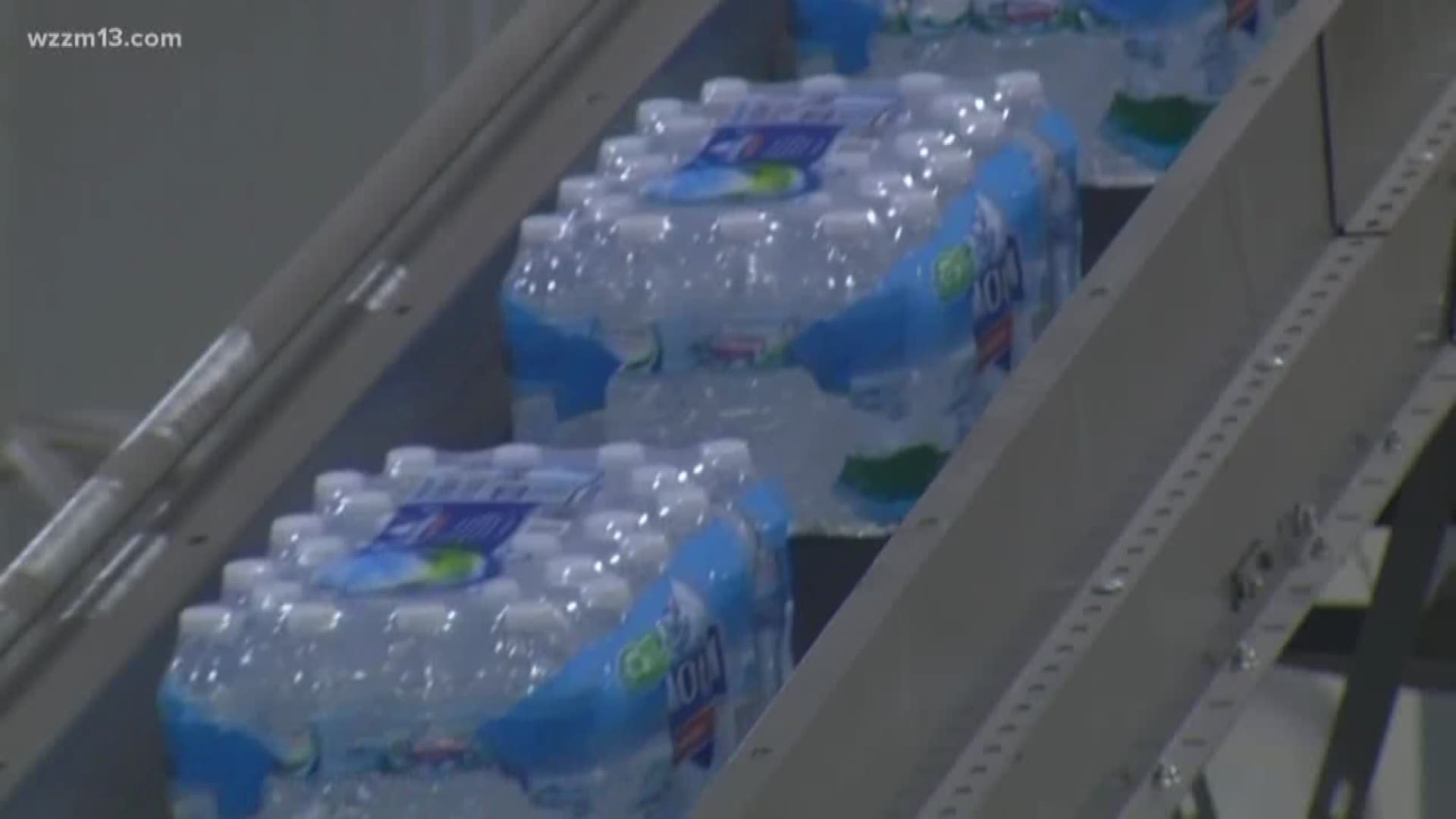The Michigan Department of Environmental Quality approved a controversial permit Monday for Nestlé Waters North America to increase the amount of water it withdraws from the state’s groundwater table from 250 gallons a minute to 400 gallons.
Despite vehement opposition to the permit from residents in Osceola County, where the Nestle well is located, and water activists across the state, the DEQ said the permit met the requirements of the Michigan Safe Drinking Water Act.
“The scope and detail of the department’s review of the Nestlé permit application represents the most extensive analysis of any water withdrawal in Michigan history,” said C. Heidi Grether, director of the state DEQ, in a statement. “We are hopeful that whether residents agree with the Nestlé permitting decision or not, they will acknowledge and respect the work that MDEQ staff did to thoroughly and conscientiously apply the law in reviewing the permit.”
Arlene Anderson-Vincent, natural resources manager at the Ice Mountain Natural Spring Water plant in Stanwood, said they were still reviewing the terms of the permit.
“We will need time to carefully review the specifics, but will comply with all permit requirements," she said in a statement. "We appreciate the MDEQ’s careful review and consideration of our application, in what it has called its most thorough review ever, and we look forward to providing them with the monitoring plans as required.”
James Clift, the policy director for the Michigan Environmental Council, said the permit is a mixed bag, with unprecedented additional monitoring and oversight requirements for Nestlé.
“But we wanted to see some improvement projects brought to the table by Nestlé,” he said. “I don’t see that in the permit and I’m disappointed.”
State Sen. Rebekah Warren, D-Ann Arbor, who serves on the Senate's Natural Resources Committee, said she was deeply disappointed by the DEQ's approval of the permit.
"Michiganders know that no private company should be able to generate profits by undermining our state's precious natural resources, which is why an unprecedented number of people spoke up to oppose this permit," she said. "Out of 81,862 comments filed by the people of our state, only 75 of them were in favor of the permit."
And Lisa Wozniak, executive director of the Michigan League of Conservation Voters, said the DEQ decision represented a fundamental failure of the agency to protect Michigan's water.
"Sadly, the DEQ chose to give the green light to a foreign company to continue pumping Michigan water virtually unchecked, hanging a ‘For Sale’ sign on Michigan’s abundant water resources," she said.
Once the monitoring plan is in place and a baseline of data is collected, Nestlé can begin withdrawing the increased amount of water from the White Pine Springs well located near Evart.
The water withdrawal increase will feed a $36-million expansion of Nestlé’s Ice Mountain bottled water facility in Stanwood. The state's Water Withdrawal Assessment Tool initially rejected the proposal, saying it would cause adverse impacts to nearby streams and fish. But the company appealed and DEQ approved the permit request.
Much of the public outrage was generated by the fact that Nestlé gets the groundwater for nothing more than a $200 per year DEQ permit. And that won’t change under the new permit.
Clift said about 3,000 high capacity wells have registered with the state. They withdraw at least 100,000 gallons of water a day. Most of them are farmers who are using the water to irrigate their fields. No one pays for the water, only the permit to withdraw the resource.
“We’re underfunding our agencies that are designed to protect public health,” he said. “This water quality program is woefully underfunded. This program needs more funding and we think the Legislature needs to address that.”
Michigan Citizens for Water Conservation sued Nestlé in 2001 over the potential damage to lakes, rivers and streams that its bottled water plant's groundwater withdrawals could cause. After years of court battles, the two sides reached a settlement in 2009, reducing Nestlé's siphoning to 218 gallons per minute from 400, with additional restrictions on spring and summer withdrawals.
The Nestlé expansion also was opposed by Osceola Township, which rejected a permit request for the pumping station at the water plant. That rejection was overturned by both county and state Appeals Courts.

